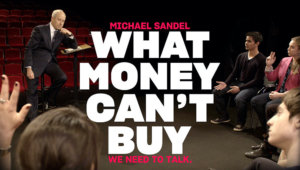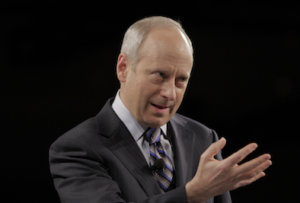In recent decades, market values have crowded out non- market norms in almost every aspect of life—medicine, education, government, law, art, sports, even family life and personal relations. Without quite realizing it, we have drifted from having a market economy to being a market society. Is this where we want to be?
Should we pay children to read books or to get good grades? Should we allow corporations to pay for the right to pollute the atmosphere? Is it ethical to pay people to test risky new drugs or to donate their organs? What about hiring mercenaries to fight our wars? Auctioning admission to elite universities? Selling citizenship to immi- grants willing to pay? This discussion takes on one of the biggest ethical questions of our time: Is there something wrong with a world in which everything is for sale? And if so, how can we prevent market values from reaching into spheres of life where they don’t belong? What are the moral limits of markets?
Introduction: Robert Johnson
President, Institute of New Economic Thinking
Presenter: Michael Sandel
Professor of Government, Harvard University
Discussant: Chrystia Freeland
Member of the Parliament of Canada, Toronto Centre









